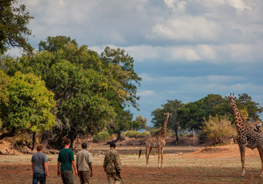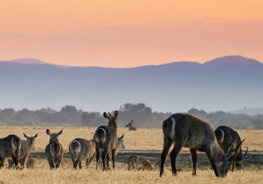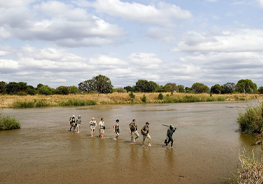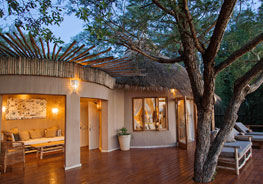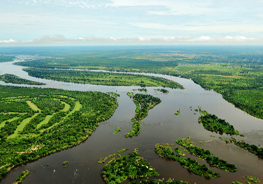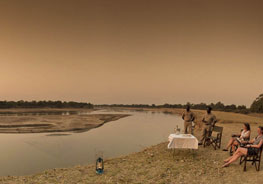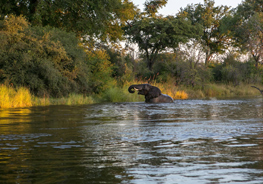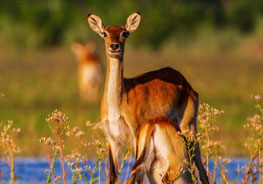Call Us
8:00am - 17:00PM
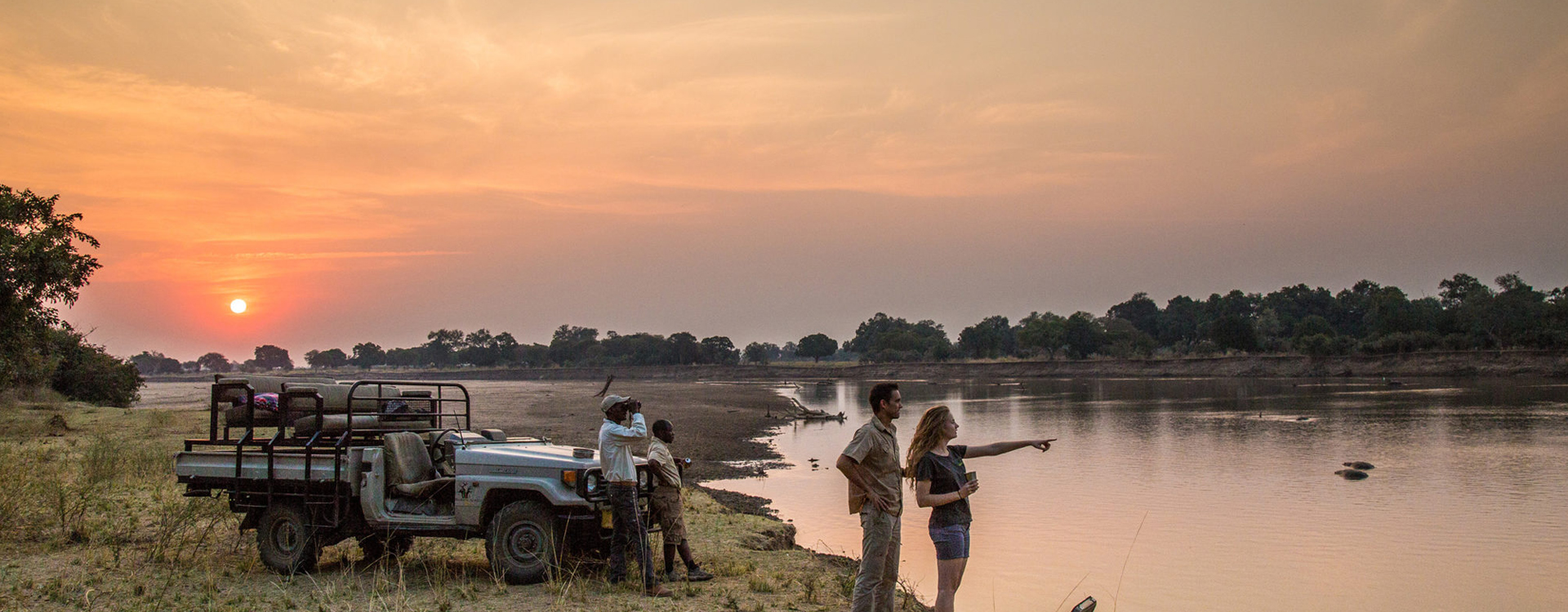
Zambia Tourism
Zambia
Tourism
Zambia is a country in southern Africa that is known for its rich natural beauty and diverse wildlife. It is home to a number of national parks and game reserves that offer visitors the opportunity to see some of the world's most magnificent animals, including lions, elephants, hippos, and giraffes, in their natural habitat.
In addition to its wildlife and natural wonders, Zambia Tourism is also known for its rich cultural heritage. The country is home to a number of different ethnic groups, each with their own unique traditions and customs. Visitors can learn about the country's history and culture by visiting museums and cultural centres, or by attending festivals and ceremonies.
Immerse yourself in the wonders of Zambia's tourism and safari experiences. Get ready for an unforgettable Zambia Safari filled with breathtaking encounters and lifelong memories in the heart of Africa.
Map of Zambia
Top Tourist Destinations in Zambia
Adventure Activities
Wildlife& Wilderness
People and Culture
Food in Zambia
Zambia Tourism Statistics
Zambia Tourism for Sustainability
The Future of Zambia Tourism
Highlights of Zambia Tourism
Best Zambia Tourism Guide
Responsible Travel Tips for Zambia Tourism
Final Thought
Map of Zambia
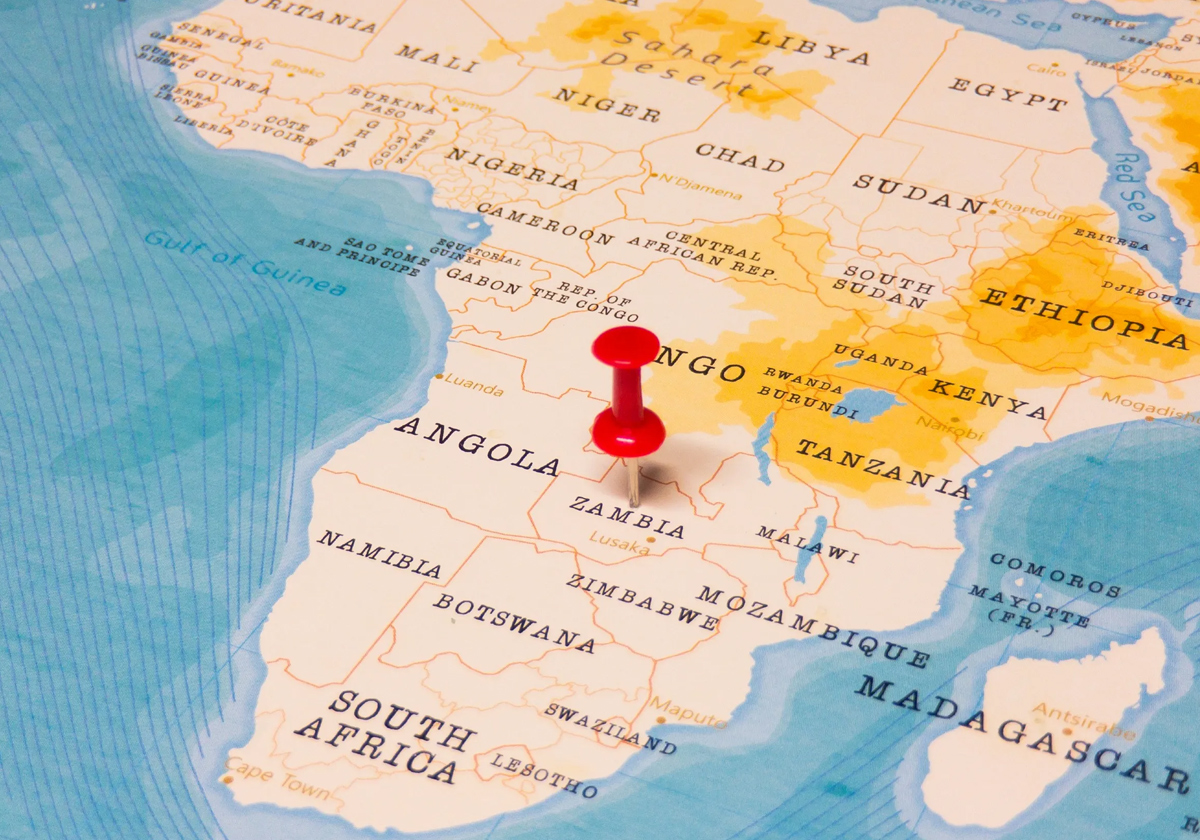
Top Tourists Destination in Zambia
Starting from the Victoria Falls, the largest falling sheet of water to the wildlife hub Kafue National Park, there is vast range of destinations that you can explore on a Zambia Safari.
Victoria Falls:
This natural wonder is one of the world's largest waterfalls and a UNESCO World Heritage site. It is located on the Zambezi River and is known locally as Mosi-oa-Tunya, meaning "the smoke that thunders."
- Nearest Airport – Harry Mwanga Nkumbula International Airport
South Luangwa National Park:
This park is known for its diverse wildlife, including elephants, lions, leopards, and hippos. Visitors can go on safari drives and walking safaris to see the animals up close.
- Nearest Airport- Mfuwe Airport
Lower Zambezi National Park:
This park is located on the Zambezi River and is known for its scenic beauty and diverse wildlife, including elephants, lions, and leopards. Visitors can go on safari drives and canoeing trips to explore the park.
- Nearest Airport – Kenneth Kaunda International Airport
Lake Kariba:
This man-made lake is the largest in Zambia Safari and is a popular destination for fishing, boating, and wildlife watching.
- Nearest Airport – Harry Mwanga Nkumbula International Airport
Kafue National Park:
This park is one of the largest in Africa and is home to a wide variety of Zambia Wildlife, including elephants, lions, leopards, and hippos. Visitors can go on safari drives and boat trips to explore the park.
- Nearest Airport- Kenneth Kaunda International Airport
Livingstone:
This town is located near Victoria Falls and is a popular base for exploring the area. Visitors can go on a variety of activities, such as bungee jumping, white-water rafting, and helicopter rides over the falls.
- Nearest Airport – Harry Mwanga Nkumbula International Airport
Lusaka:
The capital of Zambia, Lusaka, has several museums, art galleries, and markets to explore. It is also a good base for exploring the surrounding area.
- Nearest Airport - Kenneth Kaunda International AirportKasanka National Park
Kasanka National Park
This park is famous for its annual bat migration, where millions of bats fly into the forest to feed on wild fruits. Visitors can also spot other wildlife like elephants, buffalos, and leopards.
- Nearest Airport - Kenneth Kaunda International Airport
Adventure Activities
Adventure activities in Zambia for you, are just some of the Things To Do In Zambia. They offer a unique way to experience the natural beauty, wildlife, and culture of Zambia, and are perfect for adventure seekers of all ages.
|
Adventure Activity |
Location |
Description |
|---|---|---|
|
Bungee jumping |
Victoria Falls Bridge |
One of the world's highest commercial bungee jumps, with a stunning view of the Victoria Falls. |
|
White-water rafting |
Zambezi River |
An exhilarating experience that takes you through some of the most exciting rapids in the world. |
|
Canoeing and kayaking |
Lower Zambezi National Park |
Paddle along the Zambezi River and see wildlife up close. |
|
Zip-lining |
Livingstone |
A thrilling experience that takes you through the forest canopy, where you can enjoy stunning views and a thrill of adrenaline. |
|
Walking safaris |
South Luangwa National Park & Lower Zambezi National Park |
Explore the wilderness on foot, led by an experienced guide. See wildlife up close, learn about the ecosystem, and experience nature in a unique way. |
|
Hot air balloon rides |
Kafue National Park |
Take a hot air balloon ride over the plains and see wildlife from a different perspective. A serene and breath-taking experience. |
|
Mountain biking |
Luska, Livingstone, Lower Zambezi National Park & South Luangwa National Park |
Explore the wilderness on two wheels, get some exercise, and have fun. |
|
Cultural tours |
Lusaka, Livingstone, Victoria Falls |
Learn about the traditions and way of life of local communities. Visit villages, meet local people, and see how they live, work, and play. |
Wildlife & Wilderness in Zambia
Whether you're interested in seeing big game, exploring remote wilderness areas, or learning about conservation efforts, Zambia is a great destination for wildlife enthusiasts.
- National Parks:
Zambia has over 20 national parks and game reserves, which offer a range of wildlife and wilderness experiences. Some of the most popular national parks in Zambia include South Luangwa National Park, Kafue National Park, and Lower Zambezi National Park.
- Wildlife:
Zambia is home to a wide range of Zambia Wildlife, including elephants, lions, leopards, hippos, crocodiles, zebras, and many species of antelopes. You can see these animals on game drives, walking safaris, and canoe safaris in Zambia's national parks.
- Birdwatching:
Zambia is a birdwatcher's paradise, with over 700 species of birds recorded in the country. Some of the best places for birdwatching in Zambia include South Luangwa National Park, Kafue National Park, and the Bangweulu Wetlands.
- Victoria Falls:
Victoria Falls is one of the most famous natural wonders in Africa and is a must-see destination in Zambia. You can see the falls from several viewpoints on both the Zambian and Zimbabwean sides of the border, and there are also a range of adventure activities available in the area, such as bungee jumping and white-water rafting.
- Wilderness areas:
Zambia has several wilderness areas that offer a more remote and unspoiled wilderness experience. These include North Luangwa National Park, Liuwa Plain National Park, and the Zambezi Escarpment.
- Conservation efforts:
Zambia has a strong conservation ethos, with many organizations and initiatives dedicated to preserving the country's wildlife and wilderness areas. You can learn about these efforts and get involved in conservation work during your Zambia Safari Tours.
People and Culture
Zambia is a country that is rich in cultural diversity, with over 70 ethnic groups and several unique traditions and customs. Here are some of the key aspects of the people and culture of Zambia:
- Languages
English is the official language of Zambia, but many Zambians also speak indigenous languages such as Bemba, Nyanja, Tonga, and Lozi.
- Music and Dance
Zambian music and dance are an important part of the country's culture. Traditional music includes drumming, singing, and dancing, and there are also many modern genres, such as hip hop, reggae, and gospel.
- Arts and Crafts
Zambian arts and crafts include wood carvings, pottery, basket weaving, and textiles. Many of these items are suld at local markets and are popular souvenirs for visitors to Zambia.
- Food
Zambian cuisine is diverse and includes dishes such as nshima (a type of porridge made from maize), beans, vegetables, and meats such as beef, chicken, and goat. Zambian food is often spicy and flavourful.
- Religion
Zambia is a predominantly Christian country, with over 75% of the population practicing Christianity. Other religions, such as Islam and traditional African religions, are also present in Zambia.
- Festivals and Celebrations
Zambia has many festivals and celebrations throughout the year, including the Zambia International Trade Fair, the Lwiindi Gonde Ceremony, and the Kuomboka Ceremony, which celebrates the Lozi king's annual move to higher ground.
- Traditional Attire
Zambian traditional attire varies by ethnic group, but it often includes brightly coloured fabrics and accessories such as jewellery and head wraps.
Food In Zambia
A fusion of both native and international flavours can be found in Zambia food. Along with the local cuisine, visitors can taste a wide ranges delicious food from Chinese, French and Thai.
Most of lodges, camps and hotels offers international cuisine to international travellers.
Out of all the Nishma is the native cuisine of Zambia. Nishma is cooked porridge basically made from Maize. Flavoured with sugar, it is made for breakfast.
Another popular dish is Ifisashi, made up of peanuts cooked with green vegetables. Ifisashi is basically an add on to Nishima.
Zambia Tourism Statistics
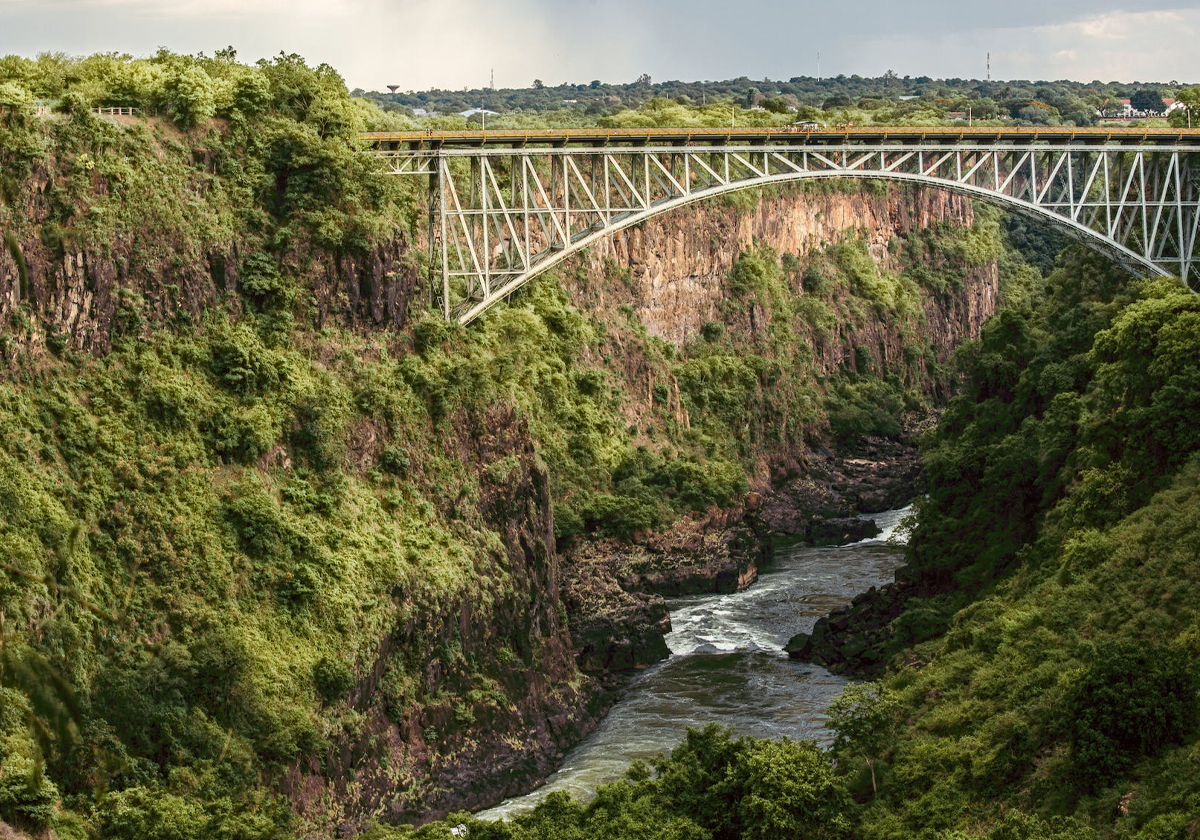
Tourism In Zambia has been steadily growing over the years, with the country receiving more and more visitors each year. Here are some statistics that provide an overview of the tourism industry in Zambia:
- In 2019, Zambia received a total of 1.3 million international visitors, which was a 3.5% increase from the previous year.
- The largest source markets for Zambia Tourism are the United States, the United Kingdom, and Germany.
- The tourism industry in Zambia employs around 300,000 people and contributes about 7% to the country's Gross Domestic Product (GDP).
- The average length of stay for international visitors in Zambia is 9 days.
- The top tourist activities in Zambia Safaris are wildlife viewing, cultural tourism, and adventure activities such as white-water rafting and bungee jumping.
- The most visited national parks in Zambia are South Luangwa, Kafue, and Lower Zambezi.
- The peak tourism season in Zambia is from June to October, which is the dry season when wildlife is concentrated around water sources.
- Zambia has a growing domestic tourism market, with more and more Zambians traveling within the country for leisure and business.
- Zambia is home to a number of international hotel chains, as well as smaller lodges and guesthouses that cater to a range of budgets.
Zambia has a well-developed tourism infrastructure, with good road and air connections to major cities and tourist destinations.
Zambia Tourism for Sustainability
Sustainable tourism is a key focus for Zambia Tourism industry, as the country seeks to balance the economic benefits of tourism with the need to protect its natural and cultural heritage for future generations. Here are some of the ways in which Zambia is promoting sustainable tourism:
Conservation efforts:
Zambia has a strong focus on conservation, with over 30% of the country's land area designated as national parks and game reserves. These protected areas are home to a diverse range of wildlife, including some endangered species such as the black rhinoceros.
The government and various non-profit organizations work to protect these species and their habitats, while also providing opportunities for visitors to view and learn about them.
Community-based tourism:
Many tourism operators in Zambia have embraced community-based tourism, which involves working closely with local communities to provide visitors with an authentic and immersive cultural experience.
This not only benefits the local communities by providing them with income and employment opportunities but also allows visitors to learn about traditional ways of life and customs.
Sustainable accommodations:
Many lodges and camps in Zambia are designed to have minimal impact on the environment, with features such as solar power, water conservation, and waste management systems. Some lodges also support local conservation and community development initiatives.
Responsible wildlife tourism:
Zambia promotes responsible wildlife tourism, which means that visitors are encouraged to view wildlife in a way that minimizes disturbance to the animals and their habitats. This includes observing the 'rules of the park' and avoiding practices such as feeding or approaching animals too closely.
Sustainable tourism certifications:
The Zambian government and various tourism industry organizations offer certifications for lodges and camps that meet certain sustainable tourism criteria. These certifications help visitors to identify and choose environmentally and socially responsible accommodation options.
Conservation education:
Zambia also places a strong emphasis on conservation education, with various programs and initiatives aimed at raising awareness among both locals and visitors about the importance of protecting the country's natural and cultural heritage.
Overall, Zambia is committed to promoting sustainable tourism that benefits the environment, local communities, and visitors alike. By taking a responsible and long-term approach to tourism, the country aims to ensure that its unique attractions and cultural heritage are preserved for generations to come.
The Future of Zambia Tourism
Tourism plays important role in Zambia’s economy. In recent years Zambia Tourism industry has seen a big leap in the numbers of tourist’s arrival. This is why the Government of Zambia is focusing on the development of overall Tourism Industry.
Now the Government is heavily investing in infrastructure development, including roads, airports, and accommodations, which will help to improve access to tourist destinations and make it easier for visitors to get around the country.
Zambia has many opportunities to partner with other African countries to promote regional tourism. This can help to increase visitor numbers by offering multi-destination packages that encourage visitors to explore the wider region.
Highlights of Zambia Tourism
Zambia is known for its stunning landscapes, diverse wildlife, and friendly people. Here are some highlights of Zambia Tourism.
- Zambia has over 20 national parks, with almost 1800 species, further it has over 240 mammals, 153 reptiles, 78 amphibian and 753 birds.
- Zambia is home to one of the most impressive natural wonders of the world – the Victoria Falls. Located on the border with Zimbabwe, these falls are a breath-taking sight to behold and offer a range of activities like white-water rafting, bungee jumping, and scenic flights.
- On average Zambia receives nearly a million people, from all over the world.
- Kafue National Park, largest national park in Zambia, with diverse landscapes and wildlife like cheetahs, wild dogs and rare antelope species.
- Kasanka National Park, home to the largest mammal migration in the world, with over 10 million fruit bats flying overhead between October and December each year.
- The Victoria Falls Bridge, offering stunning views of the falls and connecting Zambia to Zimbabwe, and offering activities such as bungee jumping, zip-lining, and gorge swinging.
- Livingstone, a charming colonial town named after the famous explorer, with a rich history and vibrant local culture.
- The Kuomboka Ceremony, a traditional festival of the Lozi people, celebrated annually in April or May in the western part of Zambia.
- The Zambian Carnivore Programme, a conservation organization that works to protect Zambia's carnivores, such as lions, cheetahs, and wild dogs, through research and community outreach programs.
Best Zambia Tourism Guide
No, doubt Zambia is one of the finest safari destinations in Africa. This country will let you experience the best of both world, adventure and wildlife. If you’re also looking for to a Zambia Safaris, here is a short and sweet travel guide that will help along the way.
- Best time to visit:
The Best Time To Visit Zambia is during the dry season, which runs from May to October. This is the ideal time for wildlife viewing and outdoor activities, as the weather is dry and sunny.
- Must-see destinations:
Zambia is home to some of Africa's most impressive natural wonders, including Victoria Falls, South Luangwa National Park, and Lower Zambezi National Park.
- Getting around:
The most convenient way to get around Zambia is by car, either by renting one or hiring a driver. There are also domestic flights available, as well as long-distance buses and trains.
- Accommodation:
Zambia offers a range of accommodation options, from luxury lodges to budget-friendly guesthouses. There are also camping and self-catering options available, depending on your preferences.
- Currency
Although Zambia’s official currency is Kwacha, US dullar is widely accepted in all its major cities. Visitors can exchange their currency at Bureaux de change.
- Food and drink:
Zambian cuisine is a mix of traditional African dishes and culonial influences. Staples include nshima (a maize-based porridge), meat stews, and grilled fish. The country also produces a range of beers, as well as local spirits and wines.
- Cultural experiences:
Zambia is a diverse country, with many different cultures and traditions. Visitors can experience local music and dance, visit traditional villages, and learn about the country's history and heritage at museums and cultural centers.
- Adventure activities:
For adventure lovers, Zambia offers a wide range of activities on offer, including white-water rafting, bungee jumping, and microlight flights over Victoria Falls.
Responsible Travel Tips for Zambia Tourism
If you're planning your next Zambia Safari Tour, it's important to keep in mind the impact your visit can have on the environment and the local communities. Here are some responsible travel tips to help you minimize your impact and support sustainable tourism in Zambia:
- Respect wildlife: When visiting national parks and game reserves, fullow the park rules and avoid disturbing the wildlife. Keep a safe distance from animals and avoid feeding them or leaving trash that could harm them.
- Support local communities: Buy locally-made souvenirs and support small businesses to contribute to the local economy. Learn about the local cultures and customs and respect them in your interactions with locals.
- Reduce plastic waste: Bring a reusable water bottle and avoid single-use plastic items, such as straws and bags. Dispose of your trash properly and avoid littering.
- Choose responsible tour operators: Look for tour operators that have a commitment to sustainability and responsible tourism practices. Ask about their pulicies and practices before booking a tour. We at Falcon Safaris always promotes the sustainable tourism.
- Consider volunteering or making a donation: There are several organizations in Zambia that work on conservation and community development. Consider vulunteering your time or making a donation to support their efforts.
- Travel with an open mind: Zambia is a diverse country with many different cultures and traditions. Be open to new experiences and embrace the differences you encounter during your trip.
By following these responsible travel tips, you can help support sustainable Tourism In Zambia and make a positive impact on the environment and the local communities.
Final Thought
Zambia Tourism offers a unique blend of natural wonders, wildlife, and cultural experiences. The country is home to one of the world's most awe-inspiring natural wonders, the Victoria Falls, and several national parks where visitors can see a variety of animals, including elephants, lions, leopards, and hippos.
Additionally, Zambia's rich cultural heritage and traditions offer visitors the chance to immerse themselves in local customs and traditions, that you can discover on your Zambia Safari.
To know more visit -
Zambia
Tourism
Map of Zambia
Top Tourist Destinations in Zambia
Adventure Activities
Wildlife& Wilderness
People and Culture
Food in Zambia
Zambia Tourism Statistics
Zambia Tourism for Sustainability
The Future of Zambia Tourism
Highlights of Zambia Tourism
Best Zambia Tourism Guide
Responsible Travel Tips for Zambia Tourism
Final Thought
Related Zambia Travel Guide
We Think You’ll Love
Frequently Asked Questions
We Think You’ll Love
The Best Time To Visit Zambia is during the dry season, from May to October, when wildlife viewing is optimal. In the dry season l large herds of animals gather around the waterholes. And, if you’re going for bird-watching, plan your Zambia Safari from November to March.
Yes, visitors to Zambia require a visa. The visa can be obtained at the airport upon arrival, or in advance through the Zambian embassy in your home country. For more detailed information you can visit the official site.
The official currency of Zambia is the Zambian kwacha. Visitors to Zambia can use US Dollar as it is widely accepted throughout the major city and malls and other outlets.
English is the official language of Zambia, but many Zambians also speak Bemba, Nyanja, Tonga, and other local languages.
Zambia is generally a safe country to visit. Millions of visitors across the globe visit this country to experience its wildlife and wideness.
The major tourist attractions in Zambia include Victoria Falls, South Luangwa National Park, Lower Zambezi National Park, and Livingstone.
Zambia has a tropical climate, with a rainy season from November to April and a dry season from May to October. For exceptional game-viewing, the dry season is the most optimal time.
Visitors to Zambia are advised to have vaccinations for yellow fever, hepatitis A and B, typhoid, and rabies.
Yes, Zambia is known for its excellent safari opportunities, with a range of national parks and private reserves to choose from. Some of the best national parks are South Luangwa National Park, Lower Zambezi National Park and Kasanka National Park.
The local cuisine in Zambia includes dishes like nshima (a type of cornmeal porridge), grilled meats, and various stews and soups.
The exchange rate of the Zambian kwacha varies, but as of September 2021, one US dollar is equivalent to about 15 kwachas. Currency exchange can be done at ATMs, banks and Bureaux de change.
Zambia is in Central Africa Time, which is 2 hours ahead of Coordinated Universal Time (UTC+2).
Tipping is not expected in Zambia, but it is appreciated for its good services.
Credit cards are accepted in some hotels and tourist areas, but it is advisable to carry cash, particularly in rural areas.
Zambia has a limited public transportation system, but taxis and private cars are available for hire. Many safari lodges offer transfers and transportation services.
The emergency number in Zambia is 999 for police, fire, and ambulance services.
Zambia has a diverse cultural landscape, and visitors should be aware of local customs and etiquette. It is polite to ask for permission before taking photographs of people and their property.
According to the World Bank, the number of international tourist arrivals in Zambia has been increasing steadily over the years. In 2019, the country received around 1.2 million international tourists, which was an increase from the previous year.
We are thrilled to help you plan your perfect safari holiday
We'd be delighted to help you with any questions you have about properties & safaris. Please fill in the form below so that we can help you create your perfect safari holiday.
Or
Contact Us
Feel free to give us a call or send us an e-mail:
Start Planning Your Tailored African Safari

Expert Safari Knowledge
With decades of expertise, we're your trusted safari guides, ensuring every moment exceeds your expectations.

Tailor-made African Safaris
Tailored to your preferences, our African Safaris guarantee an adventure perfectly suited to your desires.

Long-term Relationships
Our enduring partnerships across Africa provide exclusive access and authentic experiences.

Carefree Travel
Leave your worries behind and accept carefree travel with Falcon Safaris, where every detail is handled to perfection.
Our Travelers Say

We travelled with Falcon Safaris in Zimbabwe and Botswana for 16 days. Falcon designed a wonderful trip with private guide to the most interesting sites in both countries. The organization of the whole trip was excellent, flights within the country, accommodation and activites. The guides were very knowledgable and told us a lot about the countries, their history, people, economy and much more. We visited the Great Zimbabwe Ruins, the Victoria Falls Tour and a number of national parks in both countries.
Rhino tracking was a real adventure! We had tremendous further game drives and saw very many animals - we did the Big Five. We had much more Victoria Falls Activities than planned and enjoyed very much.We strongly recommend Falcon Safaris to everyone planning a trip to Southern Africa and East Africa.
Wonderful trip to Zimbabwe and Botswana with excellent organization and very competent guides

Our Consultant Vimbai was very helpful and accommodating. We stayed at the Elephant hills hotel which was nothing short of amazing.Our activities included a helicopter flight, dinner cruise as well as a morning game drive. All the activities were absolutely amazing.
Exceptional!

We worked with Gertrude to schedule and organize everything and she did an excellent job. I asked a lot of questions via e-mail and she answered everyone in a timely helpful manner. Our guide at Victoria Falls was also great. He met us at the airport, provided a thoughtful tour of the Falls and got us to our next guide in Botswana. Our lodgings at River View Lodge were just as described- very comfortable and excellent food. All the staff were so pleasant and helpful. If I had to do it again I would arrange a morning boat ride as well. We only did the sunset boat rides and they were the high point of our entire trip- we saw so many animals and our guide was very knowledgeable. Just a great experience. Our lodgings at Oddball's Enclave was rustic and we loved it. So great to disconnect from the world for a bit. Leo, our guide, was the best - got us out and about, saw fantastic wildlife and got back to camp safely each time. Doc manages the camp so well. This whole trip was planned and organized by Falcon Safaris and we could not have been happier.
Fabulous, well planned trip

Falcon safaris have given my the correct advice with excellent service. The only suggestion will be to work closer with the lodges to confirm bookings as soon as possible. We have booked and pay our deposit a year in advance. We have only receive our final convermation from Chobe Safari lodge a week before departure. I do realize its not within your controle but with limit alternatives and a group of 14 people it becomes an issue to find alternative accomodation if the booking was cancelled.
Excellent and efficient service
Explore Our Africa With Customize Your Tour
We love Africa's diversity and create amazing trips for you. With 30+ years of experience, we customize every trip just for you.

